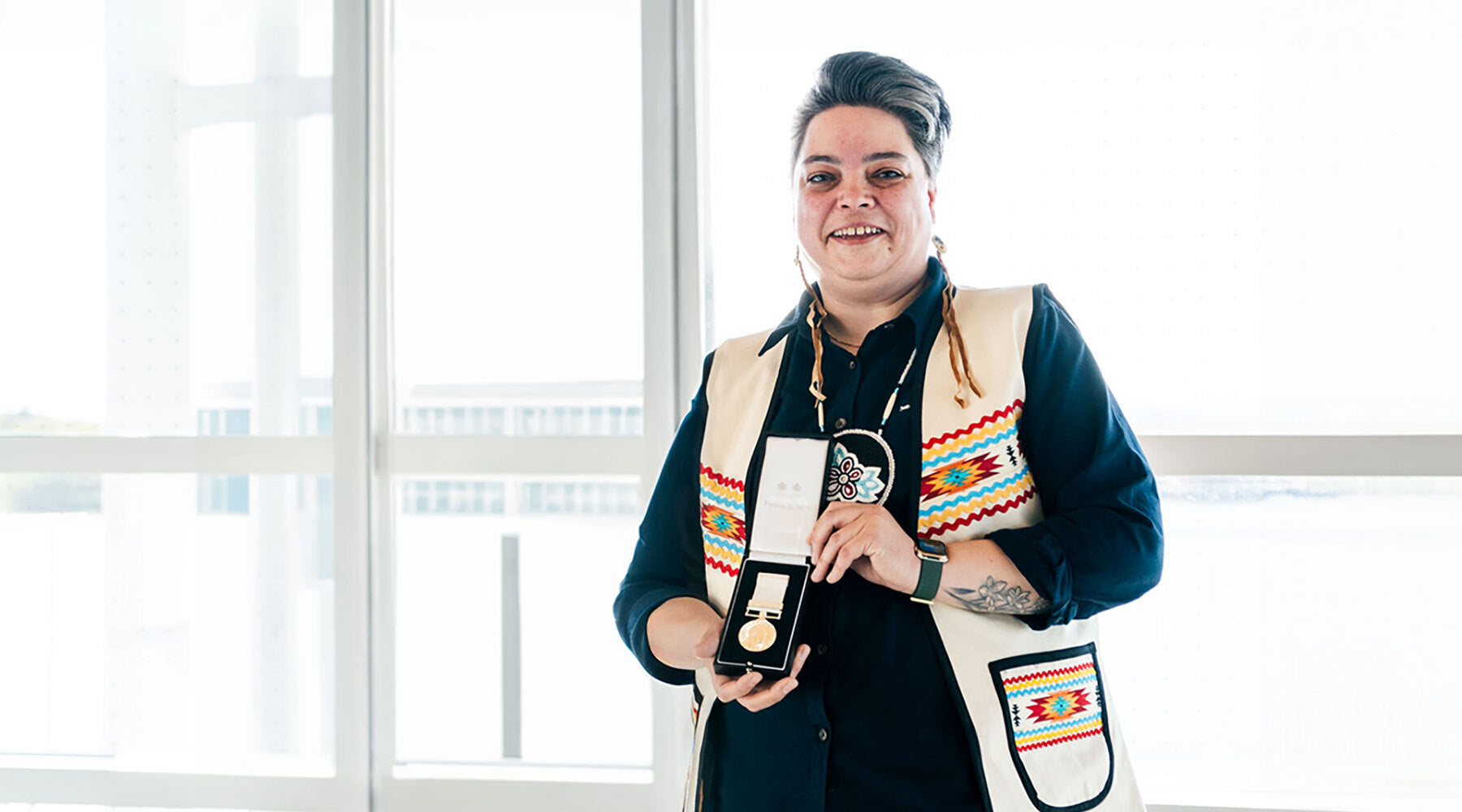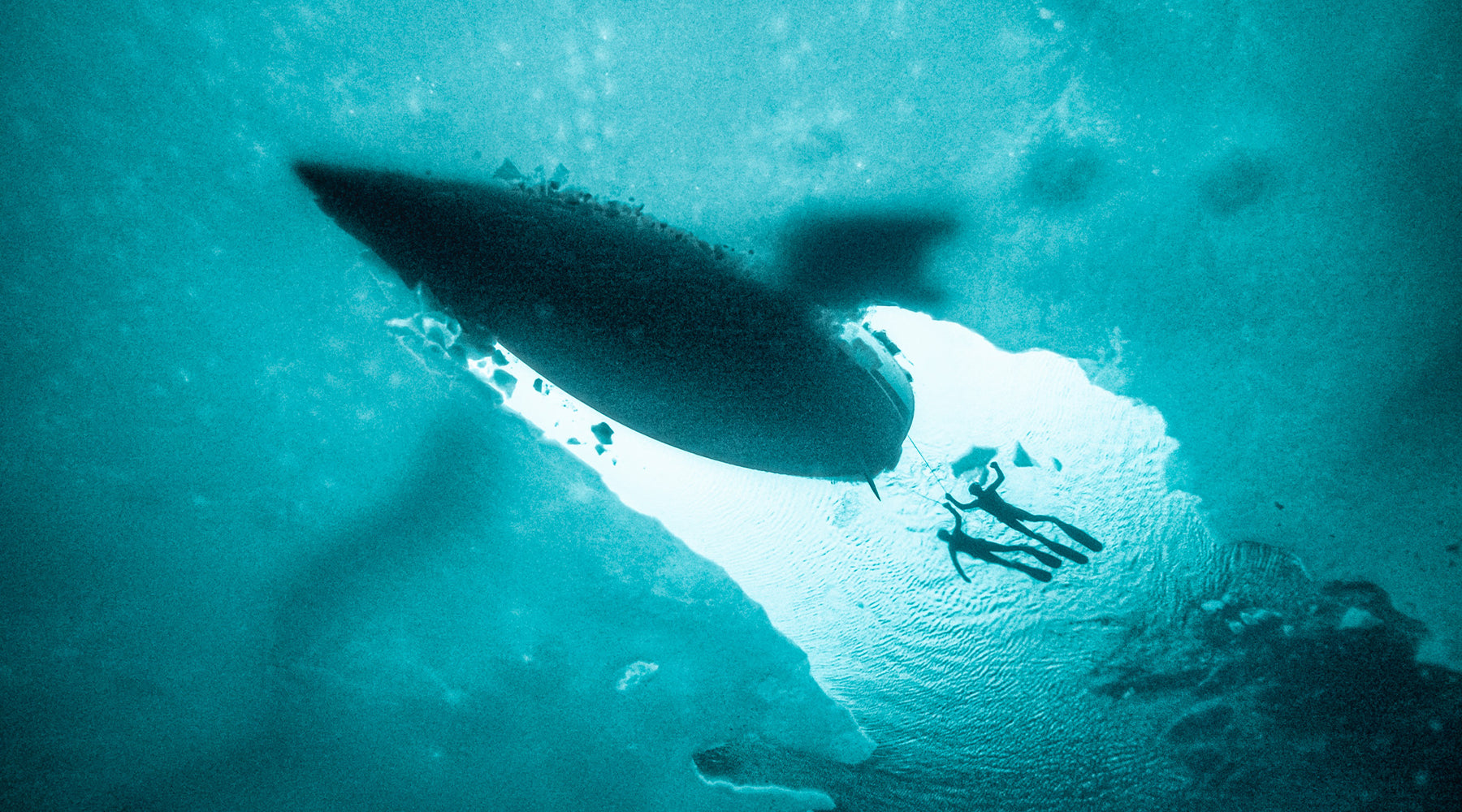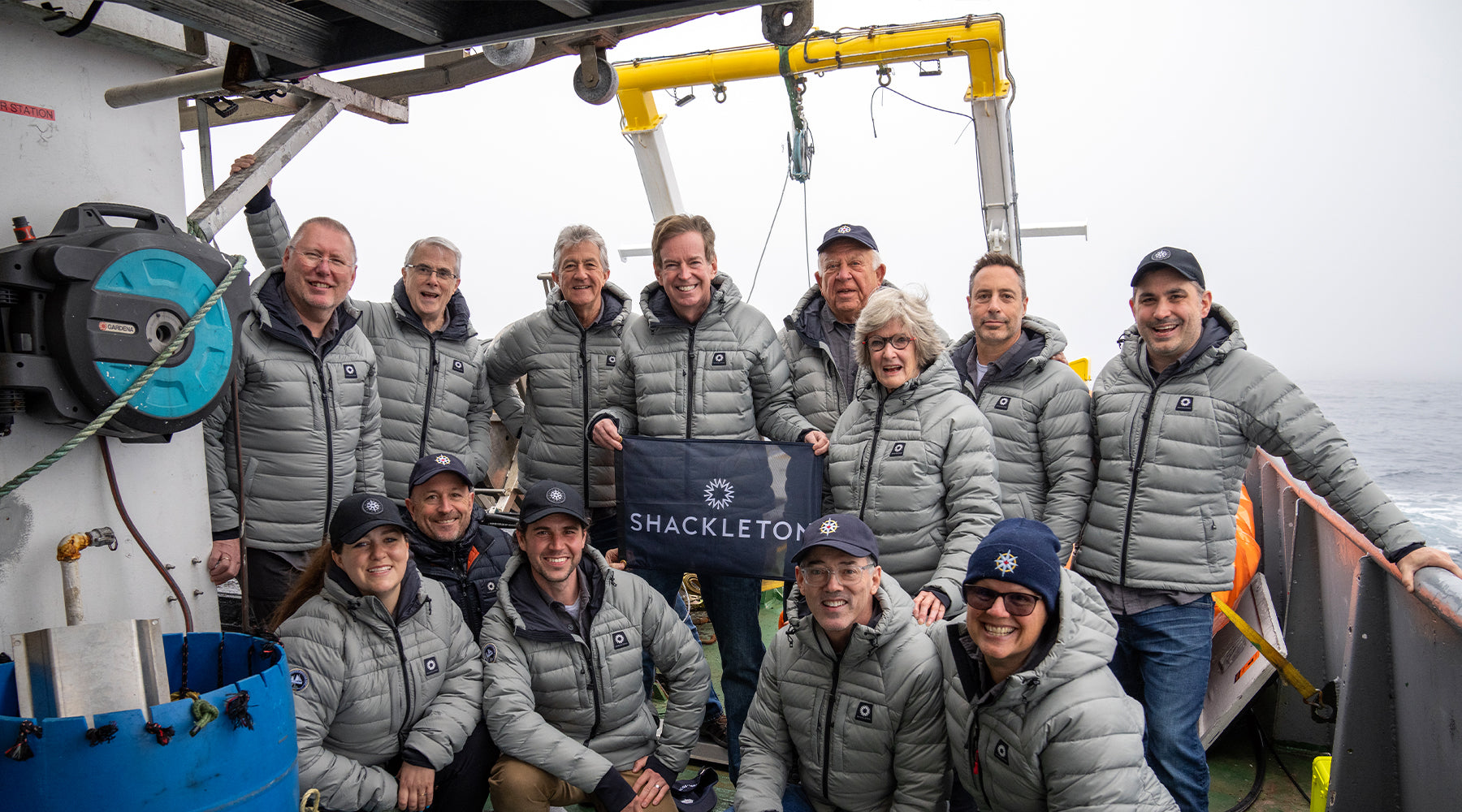
SHACKLETON MEDAL: Meet The Winner - Valérie Courtois
"If we take care of the land, the land takes care of us. When we reconnect with this love, we can heal the planet."
THE WINNER OF THE 2024 SHACKLETON MEDAL FOR THE PROTECTION OF THE POLAR REGIONS IS VALÉRIE COURTOIS, FOR REVOLUTIONISING CLIMATE CONSERVATION IN THE CANADIAN ARCTIC.
Valérie Courtois, the Director of the Indigenous Leadership Initiative (ILI) is at the forefront of a powerful movement that has revolutionised environmental conservation in Canada. Her vision to connect Indigenous Guardians as the “eyes and ears on the ground” to preserve ecosystems and tireless campaigning for more than a decade has won Prime Minister Justin Trudeau’s backing; seen her nominated as one of Time Magazine’s 100 most Influential Climate Leaders; and earned her an invitation to Buckingham Palace from King Charles III. With her resonant message, “If we take care of the land, the land takes care of us,” Courtois is a key advocate for protection of the poles and the rest of the planet using knowledge gathered over millennia. Here she shares in her own words her inspirations, motivations and challenges.
What was it that first inspired you to do what you do now?
I have always known that I was to dedicate my career to the caring of our environment and the strengthening of our relationship with our lands and waters. I can remember being 11 years old and fishing with my grandfather. I heard him laughing, and I thought he was teasing me, but he said, “I am really joyous to see you in your element, and I hope when you grow up you continue to work on the land for the land.” So it’s been a long-standing commitment.
My family has a strong ethic of community service, and I had great examples within my family of leaders and people who pursued their education in the interest of serving our communities. For example, my father was one of my Nation’s first RCMP officers and was responsible for the development of the very first National suicide prevention strategy. My godfather was our Nation’s first architect; and my godmother was Québec’s first woman to obtain a doctorate in robotics. My father’s mother was our Nation’s very first social worker, despite not having been permitted to further her schooling beyond grade 6 due to the repressive policies of Government of Canada at the time. She finally received an honorary degree in social work when she was in her 90s, a source of great pride for our family.
What detail about your work most surprises people?
I think what surprises people most about this work is the breadth of it. I don’t have a “typical” day. My work includes meeting with Nations, spending time with Indigenous Peoples on the land and in ceremony, speaking to world leaders about Indigenous-led conservation and stewardship, and lots of calls and zoom marathons. I also have had the benefit of visiting many parts of what is now known as Canada, including many remote areas, despite living in Labrador, which is not an obvious location to be based from in doing work at the national and international scale. It’s important for me to be rooted and to be near the land, and living in Labrador as an arctic region allows me that privilege.
Was there a moment when you realised that attitudes were really shifting towards what you do?
There have been a few pivotal moments recently in the movement to support Indigenous-led conservation and stewardship. One that stands out was at the UN Biodiversity Conference in Montreal in 2022 when we built an Indigenous Village. Ministers, MPs, chiefs, leaders, Elders, youth, and journalists from around the world gathered in a 100-foot-long shaputuan—a traditional Innu gathering space—to celebrate Indigenous leadership in sustaining biodiversity. It was fitting, considering 80 per cent of the world’s remaining biodiversity is on lands cared for and loved by Indigenous Peoples. Seeing this recognition and respect at a global negotiation summit felt like a significant turning point.
After all, Indigenous Peoples have been working for generations to defend our Nationhood and to ensure we can fulfill our responsibilities to our lands and waters. Here in Canada, that long-standing assertion and resistance to colonial and genocidal policies has been a long road, but we are seeing more recognition of Indigenous leadership on conservation and stewardship. In fact, Indigenous Nations have led or co-led the creation of the vast majority of protected areas within Canada in the last 20 years. Indigenous Peoples’ modern stewardship of lands and waters has also exploded: more than 200 First Nations Guardians programs care for lands and waters today—up from 30 in 2017! And as we saw at COP15, Indigenous-led conservation and stewardship are being recognized as the essential pathway to for Canada to meet international biodiversity commitments. This transformation inspires me and fills me with hope.
What is the toughest challenge you have faced and how did you overcome it?
While there have been gains in the recognition of the importance of Indigenous-led conservation and stewardship, and the recognition of our rights and titles as Indigenous Peoples, the country of Canada is still in a process of reconciliation with its colonial origins, and we are still emerging from that dark legacy as a society. We still face prejudice and racism from members of the Canadian society and are faced with systemic racism within the structures of governance and within the services compared to the average Canadian, which can be felt on a daily basis, including poverty, lack of access to education, healthcare and having a standard of living that is on par with other Canadians.
What has been the most rewarding moment for you in your work?
Without a doubt it has been seeing hope in youth. There is nothing that makes my heart sing more than hearing a young Indigenous person say “I want to be a Guardian one day” or to hear them speaking their language with great pride.
What message would you give to people trying to do what you do?
Every individual can make a great difference if you work in collaboration with others and walk through life embodying the values and teachings of your culture. We all have something to contribute to building a more hopeful and prosperous future for us all. Most often, it starts with love. For Indigenous Peoples, we recognize that people and the land are interdependent: if we take care of the land, the land takes care of us. When we reconnect with this love, we can heal the planet.
“This year’s shortlist for the Shackleton Medal for the Protection of the Polar Regions was exceptionally strong, yet in the meeting at the Royal Geographical Society in London our judges were unanimous. Valérie Courtois has shown a level of leadership, courage and determination worthy of the Boss himself; that makes her a brilliant winner for this award.”- Martin Brooks, Shackleton CEO
This is the third year of the Shackleton Medal for the Protection of the Polar Regions, which was first awarded on 5th January 2022 to mark the centenary of Ernest Shackleton’s death. Previous winners include the pioneering French glaciologist Heïdi Sevestre and the explorer and conservationist Pen Hadow.


